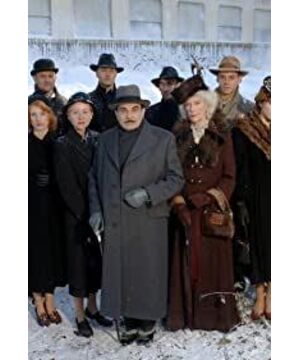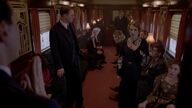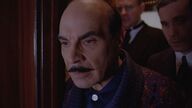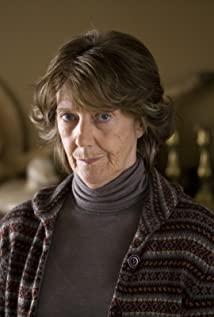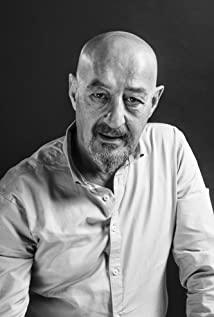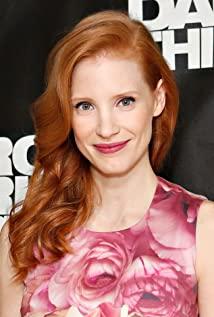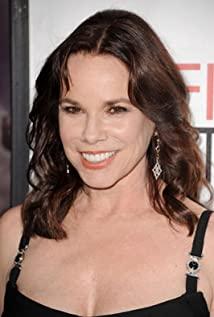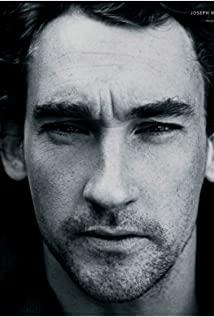First published on the public account: Jed study room
Published in 1934, "Murder on the Orient Express" is one of Agatha Christie's most well-known works, and is comparable to "No One Survives" in both the outcome of the case and the simplicity of its language (because I The grandma's work NO.1 is "No One Survives" le).
The prototype of the story of this case is the American "Lindberg Kidnapping Case" that happened in 1932: Lindberg was the first pilot to fly across the Atlantic Ocean. On the evening of March 1 that year, the kidnappers kidnapped 20-month-old son Charles from his mansion and demanded a ransom of $50,000. Although Lindbergh paid the ransom, his son was still torn apart. The later "Lindberg Act" was also born: "24 hours after the kidnapping, the victim can be presumed to have crossed the state border, and the case will be taken over by the Federal Bureau of Investigation (FBI)." For example, the year before last, the FBI took over the case of the disappearance of Zhang Yingying, a child of Peking University.
The book is divided into three parts: "facts", "testimony" and "Hercule Poirot's meditation". The narrative tone is lively. Poirot only did investigation and reasoning, and gave two kinds of conclusions of the case, and he "exited with honor" . This time there are still many characters, but this time, the 12 passengers are all panicking, and none of them are idle. Moreover, Grandma has always emphasized a dilemma: when the wicked cannot be punished according to legal procedures, should we choose to continue to believe in the law, or choose to punish privately?
Next, I will introduce the content of the novel and the five versions of the film adaptation.
1. Introduction to the original work
1.1 Outline of the novel
Poirot temporarily decided to switch to the Orient Express after receiving a telegram from London. The empty carriages in previous years were overcrowded at this time of the year, making it impossible to buy tickets. Fortunately, his friend Mr. Booker (the director of the international bus company) came forward, and Poirot boarded the train smoothly.
At lunch the next day, out of professional habit, Poirot scrutinized the other 13 passengers in the restaurant. After the meal, the American businessman who claimed to be Ratchett lured Poirot to protect his life with a large employment fee; Poirot refused on the grounds that "I don't like your appearance". Ratchett was killed that night.
On the third day, Poirot found charred scraps of paper in Ratchette's box. Under the action of the alcohol lamp, the words "Little Daisy Armstrong" appeared on the paper. As a result, Poirot discovered that Ratchett's real identity was Cassetti, the leader of the child trafficking syndicate, and the "Armstrong kidnapping case" that Cassetti had participated in.
After finding the direction of the investigation, Poirot began to question every passenger in the carriage and check their luggage. After that, Poirot gave two solutions: one was that there was a mysterious man who got on the bus halfway, and after successfully assassinating Cassetti, he escaped; the other was that the 12 passengers present who had an intersection with the Armstrong family formed a group of 12 passengers. A jury that participated in Cassetti's trial.
1.2 Characters appearing
1.3 True Clue ① The unburned fragments of letters in Cassetti's room.
② Cassetti is American and does not speak French.
1.4 Fake leads
① A conductor's uniform button dropped in Mrs. Hubbard's private room.
② A mysterious woman wearing scarlet embroidered dragon pajamas.
③ Two false clues in Cassetti's room: a pipe clearer pointed the suspect to Colonel Abbasnot (he was the only pipe-smoking passenger in the entire carriage); a handkerchief marked H pointed the suspect to Princess Dragomirov (D corresponds to H in Russian).
④ The mysterious person in the mouth of the German maid: short in stature, girly, dark-skinned.
2. 1974 Paramount Pictures film
This adaptation of the film is estimated to be a classic in the minds of many people. The famous director Sidney Lumet and a group of famous actors are a veritable big production of the year. Among them, Ingrid Bergman, who played the missionary, also won the Best Supporting Actress Award at the 47th Academy Awards for this film.
In the whole film, I am most impressed by two clips: one is the appearance of all beings in front of the train station, and the social class of each character is clear at a glance. Second, under the background of some supernatural background music, 12 passengers entered the box in turn. For the justice in their hearts and for the Armstrong family of three, each of them stabbed Cassetti. I believe that while every audience is shocked by the truth of the case, they can also feel the distinctive character endowed by each actor.
I especially liked this version of the movie poster, where every passenger on the train and key daggers are listed. Audiences who don't know the content of the original work will definitely feel a sense of enlightenment after watching the movie and looking at this poster again.
Personally, I don't really like this version of Poirot's styling. The hairspray is too thick, and the whole process shrinks and stares, which looks a little greasy and lacks wisdom.
3. A 2001 American TV movie produced by CBS
This TV movie is estimated to be the least spread of the adaptations. After watching it, many foreign audiences labeled the work "awful" and "dreadful" (bad, bad). Probably due to the influence of the movie reviews, the expectations have been lowered. After watching this movie, I actually felt that it was quite satisfactory, at least the differences from the original book were justified.
The story moved to the early 2000s, Armstrong turned into a software mogul, Cassetti turned into a vulgar nouveau riche with big gold chains, and switched to melatonin before bed; blizzards turned into landslides, revenge passengers Reduced to 9 people, as well as computers and DNA. Poirot deduced Cassetti's true identity from scars on his cornea and tattoos that had been washed off on his body. These changes are to adapt to the requirements of the times, understandable.
The biggest problem with this show is that it is scattered inside and out. On the inside, the narrative is loose and lacks climax, like a cup of cool white open, and it is tasteless; on the outside, the performance is pale, the interaction between passengers is lacking, and when the truth is revealed, the interaction between them is still superficial.
4. A TV movie broadcast by ITV in the UK in 2010
This version is a drama that I personally prefer, but I don't want to watch more. The starring is David Suchet, the most perfect Poirot player in the world. The plot is close to the original, but the shooting style is more serious and serious. At the end of the play, Poirot also experienced a dilemma between justice and law. He was holding a cross and staggering in the snow from his back, which made me feel uncomfortable and didn't want to watch it again. In this series of TV series starring David Suchet, the ones I don't want to watch the most are "The Mystery of the Blue Train", "Murder on the Orient Express" and "The Curtain".
However, this drama has the same problem as the 2017 film version, which is the gap in acting skills between the actors. Personally, only David Suchet (Poirot), Toby Jones (Cassetti) and Model Worker (Miss Marie Debenham) are on the line. The performances of other actors are too bland and hard to impress. However, this may also be due to everyone's different understanding of group drama, I prefer the emotional expression of each character in the first version.
5. A TV series broadcast by Fuji TV in Japan in 2015
The biggest hero of this TV series is the screenwriter Mitani Koki.
This drama is divided into two parts to be broadcast: on the first night, except for the lack of character identities grafted to the Showa period of Japan and the lack of language stalks, the other content fully respects the original work, and all aspects such as actor performances, costumes and props, and carriage decoration are all perfect. It's delicate. This night, the audience will have a sense of participation in the detection of the case.
On the second night, Koki Mitani used his unique imagination on the basis of the original work, and from the perspective of a bystander, he showed the audience how the 12 passengers met and planned the whole process of the trial together.
I'm not very interested in this version, mainly because of Poirot's casting: Mansai Nomura. The Poirot in my mind is Toshiyuki Nishida, who plays the flight attendant. He is an old actor with no business skills. In addition, he is rich in appearance, very similar to the funny little man Poirot who loves desserts and cocoa.
Another reason was the way the second night was performed: this trial was indeed a complete villain, but he was going to be punished in the end! Why did this group of people get together and joking like a family when they planned the murder? This makes me wonder: are they really getting revenge? Why is it more like finding a reasonable excuse for lynching?
6. 2017 20th Century Fox Productions
This film is probably the most well-known adaptation in the country at the moment. Before it was released that year, I was also looking forward to it and was excited. I read the trailer over and over again, and I bought the Imagine Dragons album because of it. Sure enough, the essence of commercial movies is in the trailers. After the domestic theaters were released on November 10, the word of mouth was seriously polarized. Most of the likes are special effects, and most of the dissatisfactions are about the plot; many grandma fans even complained, this is not Poirot, it is Sherlock Holmes. Of course, Menglong's album also left me speechless. The lead singer couldn't move the high pitch, and the more I listened, the more short-tempered it became.
When I watched the film for the first time, my thoughts were: I really didn’t tell the story well, and political correctness was everywhere; as for the lack of logic in the plot, hehe, does the screenwriter think that IP works don’t need logic? Or are we worried that our generation is used to seeing advanced special effects and will not understand it if there is logic? Now, I have three more points to make:
1. Picked up the sesame seeds and lost the watermelon . The director and starring Kenneth Branagh has a profound background in drama and is known as "Lawrence Oliver's successor", and many of the films he directed have retained the dramatic flavor. It's just that Hollywood films in recent years have paid more and more attention to special effects, such as the director's "Thor" and "Cinderella". Better storytelling. In addition, I think the director is too picky about the details. Before fixing the makeup, he specifically surveyed people's perception of "luxurious moustache" and chose such an exaggerated beard to stick to Poirot's face. How does this help the story move forward? Does the director hope that the audience can forget the classic version of 1974 because of this beard?
2. Poirot's character . Poirot was a proud gentleman, an elegant hedonist, who would not let cow dung soil his polished leather shoes again for balance, nor would he laboriously climb the top of a train , to fight the suspect. He uses his grey cells (grey brain cells), notes and chats to find the real murderer.
3. The acting skills are uneven . I like to watch the performances of veteran actors, with a touch of lightness: Depp's articulation, Pfeiffer's emotions, Dench's aura, I don't think any of these require special guidance from the director, and rely entirely on the actors' own skills. Can be done easily. On the contrary, the young actors exerted too much force. Among them, the "new interpretation" of the Earl and his wife was even more complimenting. They reminded me of the "Bamboo Pole Monster" in "Charlie's Angels" and the Allure in "The Promise". One is irrational, violent and impulsive, and the other doesn't speak properly like he's on a drug.
7. If one day our country also shoots "Murder on the Orient Express"
Don't come that day! ! !
If you shoot, please put the story in the period of Pseudo-Manchu!
If filming, the director please find Guan Hu!
If you shoot, Poirot please find Xu Zheng!
...
Forget it, it's better not to come that day!
View more about Murder on the Orient Express reviews


